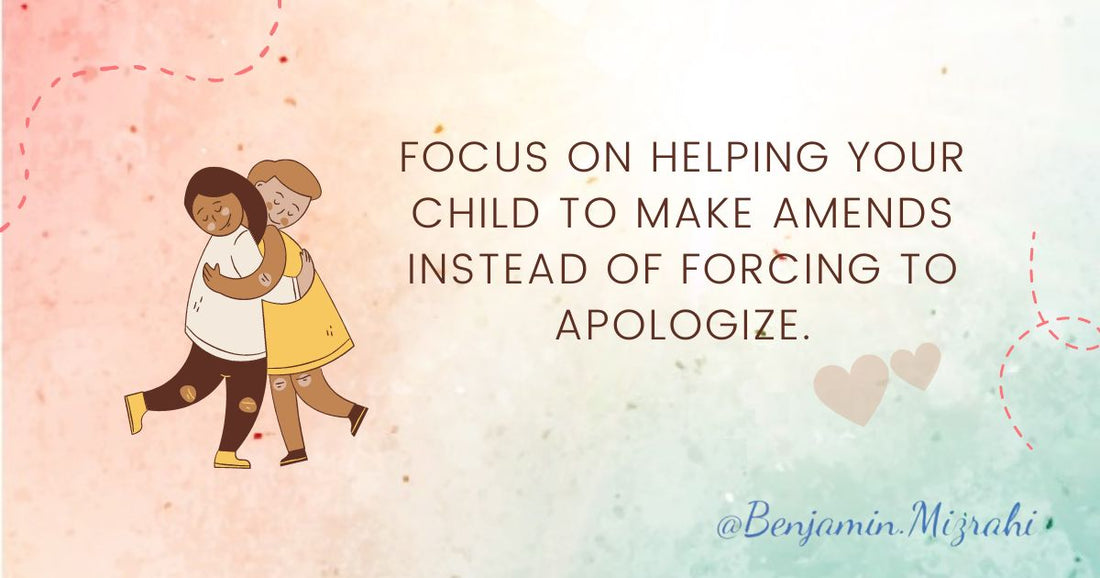
Teaching Children to Make Amends
Share
Parents often urge children to immediately apologize. And although that is not out of bad intentions, it can be counterproductive. Other children see a lack of authenticity, and a child forced to apologize is learning to feign remorse. But what is the right way to apologize? And what is the process that may be needed to get a genuine apology? How do we help our children learn the skill of apologizing, when saying “I’m sorry” can even be challenging for adults?
Knowing how to make amends is a very valuable life skill. So how can we help our children cultivate the skills to learn how to make amends and, when ready, provide a genuine apology?
- Try to begin by giving them and you a quick pause or a moment. This can provide the space needed to allow for awareness, guidance, and help.
- Do a quick check-in with yourself. By helping children learn a process, it is more likely they will be able to complete the process on their own in the future.
- Try to take in the situation. It may be helpful to verbally acknowledge their feelings. Helping children describe a situation and name their feelings can sometimes help their feelings seem less overwhelming. It can also let them know that you are trying to understand how they are feeling.
- Help them empathize and solve problems in order to find a way to make amends. If they are having difficulty coming up with a solution, then it is OK to offer some suggestions. But keep in mind, some children need to take a period after their misbehavior in order to get to a more sincere “sorry.”
- Discuss prevention strategies.
- Modeling appropriate behavior is always another valuable way to teach and influence our children.
Coach Benjamin Mizrahi. Educator. Learning Specialist. Family Coach. Father. Husband.
More articles on Mr Mizrahi's Blog - Benjamin Mizrahi
